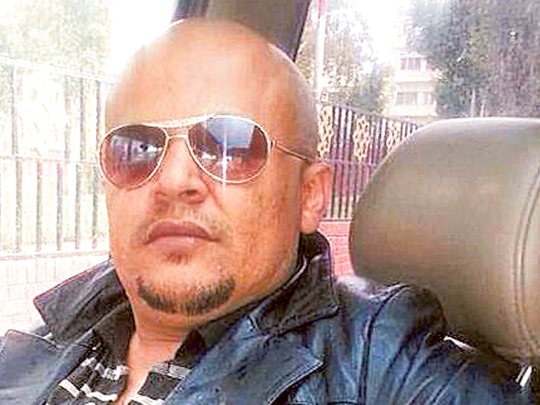
Sana’a: A string of attacks on journalists in Yemen have prompted local and international human right organisations to urge the government and warring factions to protect journalists.
The latest victims of these attacks were two journalists said to be affiliated to the rebel Al Houthi group in the capital. The first was Abdul Rahman Hameed Al Deen, a radio director at the state-run Sana’a Radio, who was shot dead in an assault on an Al Houthi office in the capital on August 15. The second was Ebrahim Al Abyadh, a director at the national TV, who survived an assassination attempt after a bomb was planted in his car on August 16. Al Abyadh found the bomb while inspecting his car.
Following the attacks, the International Federation of Journalists (IFJ) issued a statement appealing to the government to “ immediately increase protection for media workers in the country”.
“We stand in solidarity with our colleagues in Yemen to reiterate our demand that the country’s government takes immediate action to increase protection for the safety and freedom of the country’s journalists and media personnel.” said Beth Costa, IFJ General-Secretary.
Attacks
Some other journalists, who suffered attacks or threats, say that they are usually targeted because of the political affiliation of the media establishment that they represent.
Mohammad Al Mougri, a journalist based in the southeastern province of Hadramout and who works for the suspended Yemen Today TV, told Gulf News that local security officials refuse to provide him with information since he works for a TV funded by the former president Ali Abdullah Saleh. In 2011, army troops in the province were among army regiments that defected from the regime of the former president.
“Soldiers harass me since I am working forthe former president’s TV. I also receive death threats from Al Qaida. The situation is really bad,” he said.
Some of the blame goes to the Yemeni journalists’ syndicate for not doing enough to protect journalists from attack. The syndicate is the biggest umbrella organisation for thousands of journalists in Yemen. Officials at the syndicate admit that they have failed to protect journalists.
Saeed Thabet, undersecretary of the syndicate, told Gulf News that all political forces in Yemen are involved in creating a hostile environment against journalism.
“The attacks are a clear reflection of the general chaotic situation in the country. The syndicate is in a fragile state. Due to lack of cash, the syndicate has not been able to organise its general assembly.”
He added: “The syndicate has to provide journalists with guidelines on occupational safety while covering conflicts.”
The Al Houthi rebels have also received a lot of flak from international organisations for arresting two journalists loyal to their rival Islah party in July.
Yousuf Hazb, a journalist for Mareb Press news site ,and his colleague, Yousuf Qahmi, were arrested in Amran province as the rebels were asserting their grip on the province.
Reporters Without Borders said on August 14 that the journalists in the troubled nation have become “an easy prey for both sides in the armed rebellion under way in the country’s northwest”.
Christophe Deloire, secretary-general of Reporters Without Borders, said: “We strongly condemn the recent series of attacks committed by Al Houthi rebels. We also note that since the beginning of the year, journalists have also been targeted for attack by security forces as well as unidentified armed groups.”












